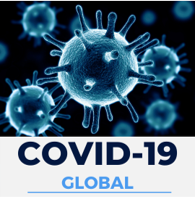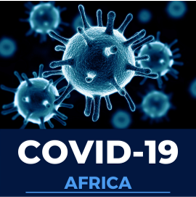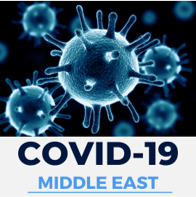Emerging Therapies for COVID-19: Drug Treatments

Open article published on MedShr: 17th December 2020
Last updated: 17th December 2020
Every effort has been made to ensure that the information contained in this article is accurate and current at time of publication, but if you notice an error please contact covid@medshr.net and we will aim to address this. Please find MedShr’s full terms of service here.
Drug Treatments for COVID-19
Since the advent of the coronavirus pandemic, the pace of scientific and translational developments has been unprecedented in an attempt to meet the clinical need generated by encountering a novel pathogen. Multiple treatments have been trialled and although several possible therapies have not been found to be effective, this review will highlight some of the evidence supporting the use of those few therapies which have been found to be of benefit. The treatments tested have ranged from antibiotics, antivirals, anticoagulants, antiplatelet medications, steroids, anti-inflammatories, antibodies and serum treatments. Other interventions being investigated include convalescent plasma and immunomodulatory treatments, which you can read about in our previous article.
In this article, we will review some of the evidence and data, which will be based on a BMJ living guideline which has been created as a response to the vast undertaking of clinical research [1-2]. More than 2800 trials on covid-19 interventions have been registered or are ongoing. Some of these include significant large international platform trials (such as RECOVERY, WHO SOLIDARITY, and DISCOVERY), which recruit large numbers of patients across multiple centres in many countries.
Because of the rapidly evolving evidence landscape, there is a need for trustworthy interpretation and the publication of clinical guidelines to inform clinicians, patients and health administrators.
Steroids
Current guidelines recommend systemic corticosteroids to be given for the treatment of patients with severe and critical covid-19 (strong recommendation). The recommendation should apply to patients with severe and critical covid-19 even if they cannot be hospitalised or receive oxygen because of resource limitations.
However, certain populations were under-represented in the trials included, such as children, patients with tuberculosis, and those who are immunocompromised. Therefore, for these groups, recommendations may not be as strong.
Clinicians should exercise caution in the use of corticosteroids in patients with diabetes or underlying immunocompromise. However, the recommendations were made with an assumption that, given the extent of use of steroids in clinical practice, most clinicians would be well acquainted with these relative contra-indications.
A 28 day mortality reduction was seen of 8.7% in the critically ill and a 6.7% reduction in patients with severe covid-19 who were not critically ill. In patients with severe covid-19, systemic corticosteroids also probably reduce the risk of death (moderate certainty evidence; relative risk 0.80 [0.70 to 0.92]).
Antivirals: Remdesivir
Current evidence supports against using remdesivir in addition to usual care for the treatment of patients hospitalised with covid-19, regardless of disease severity. This recommendation was informed by results from a systematic review and meta-analysis which pooled data from four randomised trials with 7333 participants hospitalised for covid-19.
One important consideration is that none of the included RCTs enrolled children. As such, the applicability of this recommendation to children is currently uncertain. Furthermore, the panel concluded that the evidence did not prove that remdesivir has no benefit, but that there is no evidence based on currently available data that it does improve patient-important outcomes.
Data from the network meta-analysis indicated that a subgroup of people with non-critical disease might benefit from remdesivir. However, the panel judged the credibility in this subgroup analysis to be insufficient to make subgroup recommendations.
Antiplatelet drugs: Aspirin
Patients with COVID-19 are at a known hypercoagulable state, meaning a higher risk of developing blood clots, which can be fatal. Aspirin is known for its anti-clotting properties due to its mechanism as an antiplatelet medication. Some 2,000 patients were randomised to receive a daily dose of aspirin in the RECOVERY trial.
Antibiotics and Other Antimicrobials
Another treatment being investigated by the RECOVERY trial is azithromycin, a commonly prescribed antibiotic.
This antibiotic has also been tested in other large-scale trials, including COALITION II across 57 medical centres in Brazil. The drug was tested on almost 400 patients confirmed to have coronavirus but was not found to have an impact on health outcomes.
Recent results published in the New England Journal of Medicine [3] found azithromycin not to have any benefit for patients with Covid-19, both alone and also when combined with hydroxychloroquine. A total of 667 patients underwent randomization; 504 patients had confirmed Covid-19. When compared with standard care, the odds of having more severe infection scores at 15 days was not changed by either hydroxychloroquine alone (odds ratio, 1.21; 95% confidence interval [CI], 0.69 to 2.11; P=1.00) or hydroxychloroquine plus azithromycin (odds ratio, 0.99; 95% CI, 0.57 to 1.73; P=1.00).
An interesting outcome of note was the higher proportion of patients who suffered adverse effects due to these medications: prolongation of the QT interval and elevation of liver-enzyme levels were more frequent in patients receiving hydroxychloroquine. This highlights the need for care when selecting possible new therapies.
Anti-inflammatory drugs: Toculizimab
The anti-inflammatory drug tocilizumab is also being investigated as a treatment for coronavirus. The drug is most commonly used to treat rheumatoid arthritis. Patients with severe Covid-19 have markedly abnormal inflammatory markers, including elevated serum interleukin-6, ferritin, and C-reactive protein levels. Higher concentrations of interleukin-6 in the serum are associated with higher levels of SARS-CoV-2 viremia, prolonged viral shedding, severe disease and death. It was hypothesised that IL-6 blockade could downgrade the inflammation and lead to better outcomes.
A study published in the New England Journal of Medicine in October found no real benefit of this treatment [4]. The hazard ratio for intubation or death in the tocilizumab group as compared with the placebo group was 0.83 (95% confidence interval [CI], 0.38 to 1.81; P=0.64), and the hazard ratio for disease worsening was 1.11 (95% CI, 0.59 to 2.10; P=0.73). At 14 days, 18.0% of the patients in the tocilizumab group and 14.9% of the patients in the placebo group had had worsening of disease.
Continue the Discussion:
What has been your experience with experimental treatments and trials for Covid-19? Have you been involved in trials? Join our COVID-19 discussion groups for healthcare professionals where you can discuss your cases!




References:
[1] Lamontagne F, Agoritsas T, Macdonald H, et al. A living WHO guideline on drugs for covid-19. BMJ. 2020 Sep 4;370:m3379. doi: 10.1136/bmj.m3379. Update in: BMJ. 2020 Nov 19;371:m4475. PMID: 32887691.
[2] Patient. The latest treatments for COVID-19 [online]. Available at: https://patient.info/news-and-features/the-latest-on-treatments-for-covid-19
[3] Cavalcanti AB, Zampieri FG, Rosa RG, et al. Coalition Covid-19 Brazil I Investigators. Hydroxychloroquine with or without Azithromycin in Mild-to-Moderate Covid-19. N Engl J Med. 2020 Nov 19;383(21):2041-2052. doi: 10.1056/NEJMoa2019014.
[4] Stone JH, Frigault MJ, Serling-Boyd NJ et al. BACC Bay Tocilizumab Trial Investigators. Efficacy of Tocilizumab in Patients Hospitalized with Covid-19. N Engl J Med. 2020 Dec 10;383(24):2333-2344. doi: 10.1056/NEJMoa2028836.
Article by Dr Adam Ali, MedShr Open Editorial Team, Medical Education Fellow
Loading Author...
Thank you Ali for posting this. I know that different guidelines exist around the world concerning the management of COVID-19 patients. In COVID-19 pneumonia, the combo Azithromycin+ Ceftriaxone or augmentin has been beneficial for patients. What is your position on the use of Ivermectin as chemoprophylaxis in covid-19?